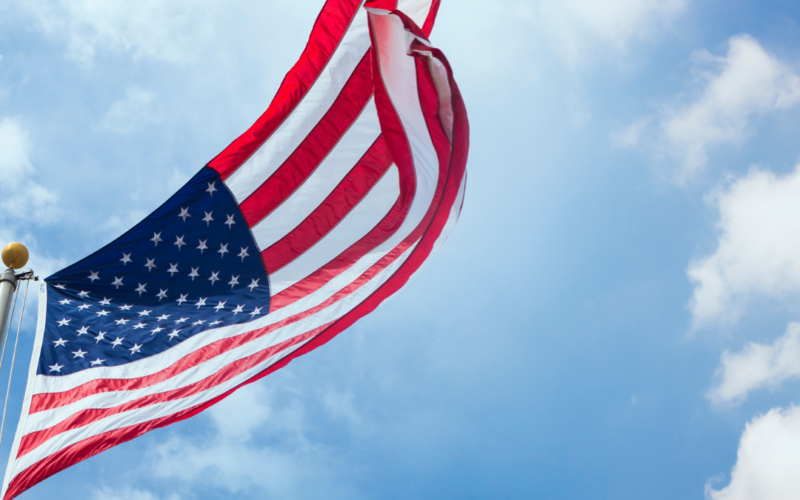Table of Contents
The History of Veterans Day in the United States: Honoring Our Heroes
Veterans Day, celebrated each year on November 11, is a federal holiday dedicated to honoring military veterans who have served in the United States Armed Forces. It is a day of gratitude, reflection, and respect for the courage and sacrifices made by millions of Americans. But beyond the solemn ceremonies and heartfelt tributes lies a rich history that has shaped Veterans Day into the important observance it is today. This blog will explore the origins of Veterans Day, its evolution over time, and its significance to the American people.
Origins of Veterans Day: Armistice Day
Veterans Day originally began as Armistice Day, marking the end of World War I. Known as “The Great War,” World War I was a devastating global conflict that lasted from 1914 to 1918. On November 11, 1918, an armistice agreement was signed between the Allied powers and Germany, bringing an end to the fighting on the Western Front. This ceasefire took effect on the 11th hour of the 11th day of the 11th month, and the date quickly became symbolic of peace and remembrance.
In 1919, one year after the armistice, President Woodrow Wilson proclaimed November 11 as the first Armistice Day. In his address to the nation, Wilson expressed the significance of the day, highlighting the sacrifices made by American soldiers in the pursuit of peace. Armistice Day was initially intended to honor the soldiers who served in World War I and to celebrate the peace they fought to achieve.
Wilson’s proclamation resonated across the country, and Armistice Day was celebrated with parades, public gatherings, and a brief pause in daily activities to honor the “war to end all wars.” The observance of Armistice Day became a way for Americans to show gratitude to the veterans of World War I and to remember the cost of war.
Armistice Day Becomes a National Holiday
As the years passed, Armistice Day continued to be celebrated, but it remained a largely informal observance until 1938. In that year, Congress officially declared Armistice Day a federal holiday, dedicating November 11 to honor the veterans of World War I. The Act of 1938 described Armistice Day as a day “to be dedicated to the cause of world peace,” and its purpose was to honor those who served in the First World War.
However, with the onset of World War II and the Korean War, it became clear that the sacrifices of American veterans extended far beyond World War I. These conflicts involved millions of American servicemen and women who bravely answered the call to duty. As a result, there was a growing recognition that Armistice Day should be broadened to honor veterans of all wars, not just those who served in World War I.
The Transformation to Veterans Day
In 1954, after the end of the Korean War, Congress made a significant change to Armistice Day. Recognizing the service and sacrifice of all American veterans, President Dwight D. Eisenhower signed legislation to change the name of the holiday from Armistice Day to Veterans Day. This change officially established November 11 as a day to honor all American veterans, past and present, regardless of when or where they served.
Eisenhower, himself a World War II veteran, emphasized the importance of uniting Americans in gratitude for the contributions of veterans. In a Veterans Day proclamation, he called on citizens to remember those who had served and urged federal agencies to support the cause of Veterans Day in all forms.
The decision to change the holiday from Armistice Day to Veterans Day reflected the growing understanding that the sacrifices of American veterans spanned generations. It recognized that each conflict—from World War I to the Korean War, and later conflicts in Vietnam, the Gulf War, and beyond—had produced brave men and women who dedicated their lives to serving their country.
The Uniform Monday Holiday Act and the Return to November 11
In 1968, Congress passed the Uniform Monday Holiday Act, which sought to provide American workers with more three-day weekends by moving certain federal holidays to designated Mondays. As part of this legislation, Veterans Day was moved to the fourth Monday in October, beginning in 1971.
However, the change proved unpopular with many Americans. The significance of November 11 was deeply rooted in the end of World War I, and many felt that moving Veterans Day to October diminished its historical importance. Veterans groups across the country advocated for the return of Veterans Day to November 11, arguing that the date held a special meaning that should not be overlooked.
In response to these concerns, Congress passed new legislation in 1975, signed by President Gerald Ford, to return Veterans Day to its original date of November 11. This law took effect in 1978, and since then, Veterans Day has been observed on November 11, regardless of the day of the week. The return to November 11 restored the holiday’s historical significance and reaffirmed its purpose as a day of remembrance and gratitude.
Veterans Day Today: Honoring All Who Served
Today, Veterans Day is observed across the United States with ceremonies, parades, and moments of silence. It is a day to reflect on the sacrifices and contributions of veterans who have served in conflicts ranging from World War I to modern-day military engagements. Veterans Day is unique in that it honors all who have served, whether in wartime or peacetime, and regardless of whether they served in combat.
Unlike Memorial Day, which honors those who died in service to the nation, Veterans Day celebrates the service of all veterans, living and deceased. It is a day of gratitude for the sacrifices veterans have made to protect our freedoms and a reminder of the resilience and courage displayed by men and women in uniform.
Each year, Veterans Day ceremonies are held at national monuments, including the Tomb of the Unknown Soldier at Arlington National Cemetery, where a wreath-laying ceremony takes place. Local communities also organize events to recognize veterans in their regions, offering a chance for citizens to come together to express their appreciation.
How to Honor Veterans Every Day
Honoring veterans shouldn’t be limited to one day a year. While Veterans Day is a national observance, showing respect and gratitude for veterans can happen year-round. Here are a few ways to honor veterans in our daily lives:
- Support Veteran-Owned Businesses: Purchasing products or services from veteran-owned businesses is a great way to show support. Many veterans go on to start successful businesses, and supporting them helps create opportunities for veterans in the community.
- Hire Veterans: If you’re in a position to hire, consider veterans as valuable candidates. Veterans bring unique skills and perspectives to the workplace, such as leadership, discipline, and teamwork.
- Educate Yourself and Others: Learning about the history of Veterans Day, the sacrifices veterans make, and the challenges they face can deepen your appreciation. Share this knowledge with friends, family, and future generations to foster a culture of respect for veterans.
- Advocate for Mental Health Resources: Many veterans face challenges related to mental health, such as PTSD, anxiety, and depression. Supporting initiatives that provide mental health resources to veterans can have a significant impact.
Veterans continue to shape the future of our country in many ways. Many veterans pursue careers in public service, business, education, and community leadership, bringing the skills and experiences they gained in the military into civilian life. Their resilience, leadership, and sense of duty continue to influence society and inspire future generations.
Honoring veterans on Veterans Day and every day means recognizing the role they play in shaping a better future for America. By supporting them in their post-service endeavors, we contribute to building a stronger, more resilient nation.
Conclusion: A Day of Reflection and Gratitude
Veterans Day is more than a day marked on the calendar; it is a time to reflect on the profound impact that military service has had on individuals, families, and the nation as a whole. From its origins as Armistice Day to its current form as Veterans Day, this holiday has evolved to honor the bravery and sacrifices of all who have served in the United States Armed Forces.
By observing Veterans Day, Americans are reminded of the freedoms they enjoy and the individuals who have fought to protect them. Veterans Day unites us in gratitude, respect, and appreciation for the sacrifices made by generations of service members.
As we observe Veterans Day, let’s commit not only to honoring our veterans on November 11 but also to recognizing their contributions and supporting them every day of the year. Their courage and dedication have shaped the nation we know today, and it is our duty to ensure that their sacrifices are never forgotten.









